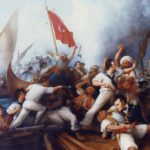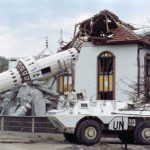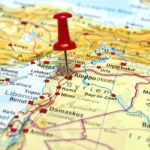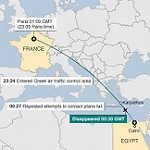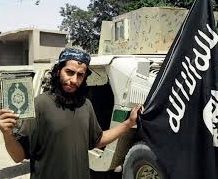When we think about the Crimean War of 1853-1856, we tend to think about fights that took place in the Crimean peninsula. The very name suggests it. It was the time when the Western powers – predominantly England and France, supported by Turkey and the Kingdom of Sardinia – made an attempt at weakening Russia. The hostilities, however, were not confined to the said peninsula. Russia’s enemies attempted landing troops, shelling ports and cities also along the Russian coastline of the Baltic and White Seas as well as in the Far East and the Caucasus.
Much the same happened when after the October Revolution of 1917 the Western powers tried to crush nascent Soviet Russia: they sent troops to intervene from the north (the Baltic Sea), from the south (the Black Sea) and in the Far East.
When today the West is waging a proxy war against Russia, it is, too, trying to engage Moscow in as many places as it is possible. Hence the Kremlin does not pay attention merely to Ukraine: it needs to be on guard in many other places simultaneously. Recently we have informed our readers about the riots in Georgia, where the Kiev-Maidan scenario is playing out a second time, and Georgia is being primed to become another Ukraine i.e. a state that will act aggressively towards Russia. so, willy-nilly, Moscow needs to divert some of Russia’s resources and troops to the Caucasus.
As if that were not enough, it is also in recent days that the long-term conflict in Syria has been reinvigorated, with the Turkish troops capturing Aleppo, and with the ISIS units making assaults here and there. Why in Syria? Because Syria’s President Bashar al-Assad has been supported by Russia (and Iran), because Russians have saved him from being toppled by the United States, because Russians are militarily present in Syria. Under such circumstances, the Kremlin needs to attend to Ukraine, to Georgia, and Syria simultaneously; Russia must also have reserves and remain on its guard as to where else a new conflict is likely to erupt.
True, the interests of particular nations in the region are opposed and of long historical standing. The Middle East – once a part of the Ottoman Empire – emerged as a mosaic of mainly Arab states at the end of World War One. The French and the British played major roles in creating “nations” and drawing or re-drawing state borders. The famed Sykes-Picot Agreement of 1916 was all about weakening Turkey and granting control of the Middle East to these two European powers. Yes, Russia was to participate in all this, but since Russia collapsed due to two revolutions and the ensuing civil war, it was the French and the British that remained in the region as dominant powers. Some of the national borders were drawn by means of a ruler (look at a map) with no regard for the ethnic or religious reality.
The Balfour Declaration of 1917 promising the establishment of a home for the Jewish people added yet another piece to the Middle East political puzzle. The tensions in the region were exacerbated by the ever growing influx of the Jewish people to Palestine after World War Two. The ethnic composition of the Middle East underwent an appreciable change. The Arab – Muslim – world stood up to the expansion of the State of Israel, with Israel being eventually backed by the United States, while some of the Arab nations relied on the support of the Soviet Union.
Of the two American allies – Saudi Arabia and Iran – the latter changed its course in 1979 and became hostile to Washington. Saudi Arabia – drawn into the American sphere of interests – has long participated in the notorious worldwide scheme of backing the dollar as the world currency of international exchange in that Saudi Arabia would sell oil exclusively for dollars and made the other OPEC countries do the same. Riyadh remained on hostile terms with Tehran for decades. It is only recently that Riyadh – also due to the political influence of Beijing – re-purposed its foreign policy and buried the war hatched with Tehran.
Today, Turkey is reviving its dreams of recreating the Ottoman Empire. Ankara is active in Syria, but also in Africa (especially in Libya), and is attempting to extend its political leverage to all Turkish peoples in Central Asia, some of which used to be Soviet republics, some of which live in the far east of the Russian Federation.
The Middle East, the Caucasus (Georgia, but also Armenia along with Azerbaijan) and Ukraine: three conflagrations in which Russia is involved, into which Russia is drawn. Three conflagrations that tap into Russia’s resources. The United States might be aiming at either extending Moscow’s activities and thus weakening Russia, or at toppling Bashar al-Assad (Assad must go! as Barack Obama and Hilary Clinton used to repeat), or at both.


